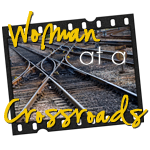 |
| Lionsgate |
Take the Harry Potter series v. The Chronicles of Narnia and The Hobbit for instance. In the beginning little Harry Potter was facing adventure that had a tinge of danger like all the other series I had ever read, but it was still pretty light and fun stuff. Boy, that changed by the end, didn't it? Tell me true, did you cry when Dumbledore died? If you didn't, then you're made of stouter stuff than me. I sobbed. I originally theorized that, as time went on, J. K. Rowling's own children got older and her writing got better, so the themes of the books developed with what her own children could emotionally handle and she could write, but maybe it was more than that. So, looking at the The Chronicles of Narnia and The Hobbit, the biggies of fantasy literature in my young days, to compare the battles and the danger those heroes face one realizes it's all relatively tame. As a matter of fact, when I re-read The Hobbit last year to get ready for the film, I was surprised by how glossed over the Battle of Five Armies was. There was some sadness involved of course, but it was certainly not taken out and explored to the dark depths that Suzanne Collins did in her series. Narnia for its part went through some tough times, but there was always a happy ending that involved mercy and goodness, and when creatures "died" they either came back to life or wandered off with Aslan.
If you want to trot out The Lord of the Rings to refute all this, let me remind you that it was not a children's series, we were just precocious children who read them anyway. And really, think about how even that, as dark as that theme was, doesn't hold a candle to all the blood and gore we're rolling around now when we pick up a George R. R. Martin book. Now, if you want to make the case that we were expected to use our imaginations more than we expect of our own children, that is a sustainable debate. But the fact of the matter is, I still maintain that authors didn't spell out the world was an ugly place and heroes have to survive it somehow and make peace with that fact as best they can. They put ugly things in it and then let the heroes defeat them. In the end, I think that's the biggest difference.
But, here's the question I'm really asking. Why? What changed?
It's not a post 9-11 reaction. Or maybe it is. But, the world is no more evil of a place than it was when I was growing up. Think about it. My parents lived during the time the planet saw arguably the greatest evil ever unleashed in the Third Reich. Fifty million people died during World War II, six million of them just because of their religion or sexual orientation. And they didn't die pretty, easy deaths - not there is such a thing. The world doesn't get any uglier than the global conflicts of the 20th century. Then follow that up with the Cold War, and I was born into a time when we could not deny that life could be hard, unfair and tainted by true evil. Yet, my parents sheltered me from all of that, as did many parents, and made me feel I lived in a secure world where, if I kept true and worked hard, all things would be alright. My dad in particular certainly knew that wasn't necessarily true, but somehow seemed intent to shelter my childhood from that. Did he do me a disservice that we're correcting in our own children? Or did he give me, as best as he knew how, a happy childhood knowing that I would learn the hard lessons of life soon enough, so I should be allowed time to feel secure in the message I got from my books that right was might, not the other way around.
What do you think?

.jpeg)










No comments:
Post a Comment